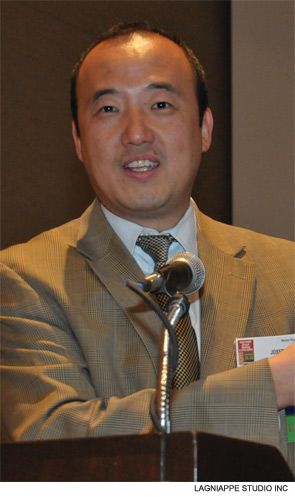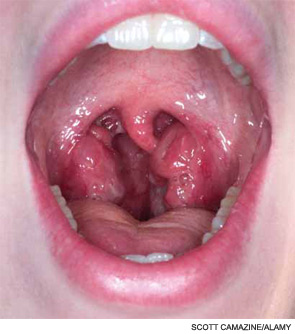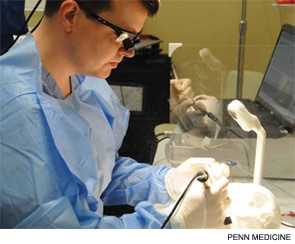A man with moderate dementia who is living in a nursing home is diagnosed with laryngeal cancer. The man is still able to talk and interact with other people. But he doesn’t know what year it is and is unable to make decisions on his own.


Otolaryngologists with a desire to broaden their careers beyond traditional medical practice have several options. Programs exist that can open doors into medical leadership, health policy work, clinical and outcomes research and public office. Opportunities are available at all stages of a physician’s career. Here’s a look at a handful of programs that aim to provide physicians with the tools they need to take their careers in a new direction.

For residents embarking on their professional careers or physicians changing a career, navigating the many issues involved in making a decision that will significantly affect both their professional and personal lives can be daunting and challenging. To provide some guidance, practicing physicians with many years of experience in their respective careers discussed these issues during a session held here Sept. 13 at the 2011 American Academy of Otolaryngology–Head and Neck Surgery (AAO-HNS) Annual Meeting.

It is now well recognized that pathogens found in biofilms play a role in many mucosal-based otolaryngologic-related infections, but what that role is and how to prevent or treat biofilms remain unknown, concluded a panel of experts convened here on Sept. 17 at the 2011 American Academy of Otolaryngology-Head and Neck Surgery Annual Meeting.

It can be difficult to launch a career as a physician–scientist, especially when budget cuts are making research funding harder to find—and this is doubly true for a small specialty like otolaryngology. That challenge is the reasoning behind the Triological Society’s grant programs. The society, which has awarded more than $2.5 million in grants since 1994, promotes research into the causes and treatments of ear, nose and throat diseases.


For otolaryngologists seeing increasing numbers of children with sleep-disordered breathing, whether or not to refer children for a polysomnography (PSG) prior to surgery is not a decision easily made. Currently, only about 10 percent of otolaryngologists request a sleep study in children with sleep-disordered breathing prior to surgery.

In May, Marcelo Antunes, MD, chief resident of otorhinolaryngology-head and neck surgery at the University of Pennsylvania, was able to practice bilobed flaps on pig’s feet at an ORL Rising Chief Boot Camp held at Penn Medicine Clinical Simulation Center in Philadelphia. While he had previously experienced medical simulation during his otolaryngology residency, the boot camp put the methodology in proper context for Dr. Antunes, who is particularly interested in facial plastics.
Dr. Harold Pillsbury gave his presentation at COSM 2011.
Dr. Gerald Berke gave his presentation at COSM 2011.